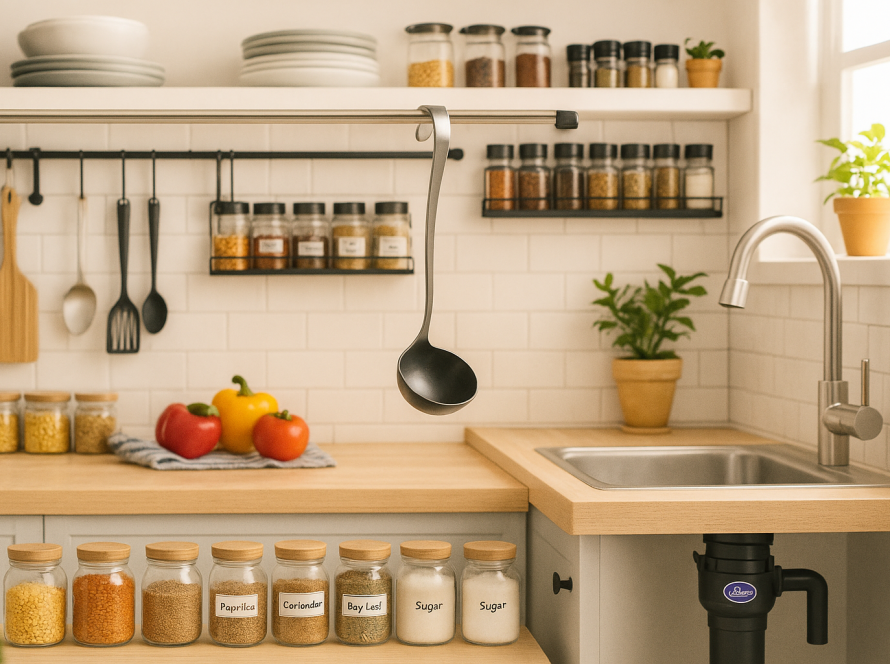Imagine this: your restaurant’s kitchen shines with modern ovens, smooth induction stoves, and a coffee machine that keeps your barista smiling. The menu is fresh, with stunning presentations, premium ingredients, and creative twists that make your competitors jealous.
But behind those swinging doors? A pile of food waste big enough to feed a small town.
Restaurants focus on upgrading everything customers see. But what about the part they don’t? Your waste system. If you’re still tossing scraps into cheap bins and hoping the smell doesn’t drift into the dining area, it’s time to talk about the unsung hero of kitchen efficiency: the commercial crusher.
Why Waste Is the Silent Kitchen Killer
Food waste isn’t just a cleanliness issue, it’s a business problem. Think clogged drains, pest troubles, and waste disposal costs that pile up faster than your weekend reservations.
In busy kitchens, waste builds up in record time. Vegetable peels, chicken bones, leftover portions, and coffee grounds all fight for bin space. By the end of the night, that bin is a smelly time bomb. The next morning, your staff spends valuable prep time dealing with it before they can even start on the day’s orders.
This is where smart waste management tech, specifically an industrial crusher, changes everything. It doesn’t just deal with waste; it reduces it instantly. Picture your trash shrinking in seconds without needing extra space or endless plastic bags.
The Commercial Crusher: More Than a Fancy Gadget
This isn’t about buying another shiny kitchen toy. A crusher for kitchen use is a hard worker, designed for the nonstop pace of a restaurant where downtime is not an option.
Why restaurants that care about speed and cleanliness are making the switch:
- Space optimization: Less waste means more room for real kitchen work.
- Better hygiene: Waste is processed immediately, cutting down on smells, bacteria, and pests.
- Staff efficiency: No more constant waste runs during service.
- Cost savings: Lower disposal costs and fewer pickups.
Big restaurants already know the value. Ever wonder how your favorite fast-food chains handle huge volumes of waste every hour? Industrial-grade waste crushers are part of their secret.
Tech Upgrades Aren’t Just for the Front of House
Restaurants quickly embraced new tech for point-of-sale systems, self-order kiosks, and delivery integrations. But the back of house, the beating heart of your business, often gets left behind.
Upgrading to a commercial crusher is as game-changing as moving to digital orders or automated inventory systems. It’s a quiet boost in efficiency that customers don’t directly see but will feel in faster service and fresher plates.
Less time spent on trash means more time perfecting dishes, maintaining kitchen order, and keeping service smooth during peak hours.
A Crusher Is the Kitchen Wingman You Didn’t Know You Needed
Your chefs have sous chefs. Your servers have floor managers. Your waste system deserves a partner too: the industrial crusher.
Real-world examples:
- Fine-dining kitchens use crushers to maintain spotless operations, especially in open-kitchen layouts.
- High-volume casual restaurants rely on them to keep up with constant waste during peak service.
- Hotels and banquet halls save thousands each year because crushers dramatically reduce disposal costs.
From cozy bistros to 300-cover buffets, crushers adapt to your pace and your type of waste.
But Is It Worth the Investment?
In the restaurant industry, every square foot and every second counts. A kitchen waste crusher pays for itself by reducing:
- Waste transport and pickup costs.
- Cleaning and pest control expenses.
- Staff time spent emptying bins.
And then there’s sustainability. Smaller waste volume means fewer truck trips, which cuts your carbon footprint, a factor today’s diners care deeply about. Restaurants that showcase eco-friendly practices not only help the planet, but they also win long-term customer loyalty.
Your Menu Has Evolved. Your Kitchen Should Too.
In 2025, restaurants aren’t just competing on flavor. They’re competing on efficiency, cleanliness, and sustainability. A commercial crusher isn’t a luxury; it’s the next logical step for any serious kitchen.
So here’s the question: If you’ve upgraded your menu, redesigned your dining space, and invested in premium ingredients, why are you still treating your waste system like it’s 1999?
Final Thoughts
Your kitchen deserves technology as hardworking as your team. An industrial crusher is a behind-the-scenes upgrade that improves your operations from the inside out. The food you serve is only as good as the kitchen that makes it, and a clean, efficient, waste-free kitchen will always be the secret ingredient to success.
Consider two kitchens on the same street. One still relies on the traditional bin run. The other has an industrial crusher.
In Kitchen A, the night ends with two staff members carrying heavy bins through a narrow corridor past stored ingredients. A trail of wastewater is wiped up after. The air smells faintly of fish from the seafood special.
In Kitchen B, waste is processed as it happens. The cleanup team wipes down surfaces, runs the dishwasher, and leaves on time. The kitchen is odor-free and ready for the morning shift.
Which one would you rather work in?



